- Expansion of Managed Care (Summary, Executive Commissioner's commitment to improving member and provider experience in Medicaid managed care, HHSC updates, STAR+PLUS, STAR Kids, advisory committees, questions and answers on managed care and access to care), Health and Human Services Commission
- Managed Care Service Areas (Map), Health and Human Services Commission
- An Audit Report on the Health and Human Services Commission's Management of Its Medicaid Managed Care Contract with Superior HealthPlan, Inc. and Superior HealthPlan Network, and Superior's Compliance with Reporting Requirements, Texas State Auditor's Office, January 2018
- "How Texas Medicaid Is Failing Children with Disabilities," Austin American-Statesman, November 2, 2017
- Utilization Review in STAR+PLUS Medicaid Managed Care, Health and Human Services Commission, November 2017
- Texas Medicaid Managed Care and Children's Health Insurance Program: Summary of Activities and Trends in Healthcare Quality, Contract Year: 2016, Institute for Child Health Policy at the University of Florida, External Quality Review Organization for Texas Medicaid Managed Care and CHIP, August 2017; Addendum, October 2017
- Demonstrating the Value of Medicaid MLTSS Programs (Survey of Medicaid managed long-term services and supports programs in 12 states, including Texas), National Association of States United for Aging and Disabilities, Center for Health Care Strategies, May 2017
- Texas Medicaid Managed Care STAR Child, STAR Adult, and STAR+PLUS Adult Behavioral Health Survey Report, Contract Year 2015, Institute for Child Health Policy at the University of Florida, External Quality Review Organization for Texas Medicaid Managed Care and CHIP, HHSC Approval Date: April 27, 2017
- "Severely Disabled Kids' Lives at Risk, Parents Say, as Texas Enacts Medicaid Cost-Savings Plan" (Including history of STAR Kids), Dallas Morning News, February 20, 2017
- Texas Medicaid and CHIP in Perspective, 11th Edition, Chapter 11: Fee-for-Service and Managed Care (Overview of Medicaid managed care programs: STAR, STAR+PLUS, STAR Kids, STAR Health, children's Medicaid dental services, dual eligible, nursing facility carve-in), Appendix D: Managed Care History in Texas, Appendix E: Managed Care Quality Assurance Reports, Health and Human Services Commission, February 2017
- Review of HHSC's Contract Management and Oversight Function for Medicaid and CHIP Managed Care and Fee-for-Service Contracts, Health and Human Services Commission, February 2017
- Combined Report on Medicaid Managed Care Provider Network Adequacy, Monitoring, and Violations, Health and Human Services Commission, January 2017
- Interim Report to the 85th Legislature (Interim Charge 9B – OIG Sunset implementation, including table of major provisions relating to HHSC Office of Inspector General in SB 200 and SB 207, 84th Legislature, R.S., and discussion of MCO efforts to reduce fraud, waste, and abuse in Medicaid), Senate Committee on Health and Human Service, November 2016
- Medicaid Managed Care Enrollment and Program Characteristics, 2015, Mathematica Policy Research, Centers for Medicare and Medicaid Services, Winter 2016
- Medicaid Managed Care in Texas: A Review of Access to Services, Quality of Care, and Cost Effectiveness, Sellers Dorsey, Milliman, Texas Association of Health Plans, February 2015
- Interim Report to the 84th Legislature (Charge 7 – Implementation of legislation in the 83rd Legislature, Regular Session; including discussion of SB 7, Medicaid Long Term Services and Supports Redesign, and Medicaid managed care), Senate Committee on Health and Human Services, 2014
- "Medicaid Roadblocks" (Early history of Medicaid managed care), Texas Medicine, Texas Medical Association, October 2013
- Interim Report to the 83rd Legislature (Charge 2 – Cost containment initiatives, including expansion of managed care), Senate Committee on Health and Human Services, December 2012
-
Explore salary data from thousands of colleges. (The Chronicle of Higher Education, accessed February 28, 2018)
-
Consider whether nutrition labeling on restaurant menus and vending machine items has affected the nation's obesity crisis. (Congressional Research Service, February 5, 2018)
-
Find laws state by state and federal law on recording conversations. (Matthiesen, Wickert, & Lehrer, S.C., January 3, 2018)
-
Read about mobile device addiction in children and parents. (USA Today, February 22, 2018)
- "Top 5 issues 2018." By John Mountjoy, et al. Capitol Ideas, January/February 2018, pp. 7-25.
Previews the top five issues facing states in 2018 in the policy areas of education, energy and environment, fiscal and economic development, federal affairs, health, international affairs, transportation, workforce development, and agriculture. Includes Medicaid waivers, infrastructure, the opioid epidemic, and the 2018 farm bill reauthorization. - "What does it mean to be evangelical?" Christian Science Monitor, January 29, 2018, pp. 18-20.
Examines the historical, political, and cultural roots of Christian evangelicals and considers whether the current political identification is doing harm to the religious identification. - "Developers have built it, but will hyperscale hop on the DFW bandwagon?; Top 10 projects in DFW." By Candace Carlisle. Dallas Business Journal, February 16, 2018, pp. 16-17, 20-21.
Profiles the North Texas data center market and how it compares across the nation. - "Harassment a pressing issue for schools." By Stephen Sawchuck. Education Week, February 7, 2018, pp. 1, 17.
Reports the #MeToo movement has raised awareness of sexual harassment in the K-12 environment and few schools address the topic with their students. Suggests there is need for sex education that includes discussion of healthy relationships and sexual consent, noting California is currently the only state that requires schools to address consent. - "States are teaching flawed lessons on slavery, says study." By Stephen Sawchuck. Education Week, February 7, 2018, p. 10.
Discusses study conducted by the Southern Poverty Law Center on how slavery is taught in schools in the United States. Concludes schools are failing to teach fundamental aspects of history based on ten key concepts on slavery used in the study to evaluate content standards, textbooks, and teacher/student experiences. - "Open for business: Trump's tenants." By Dan Alexander and Matt Drange. Forbes, February 28, 2018, pp. 88, 90-95.
Assembles a first-of-its-kind look at who is paying rent to President Trump, tracking how many millions are involved and possible conflicts of interest. - "Medicaid versus Marketplace coverage for near-poor adults: effects on out-of-pocket spending and coverage." By Fredric Blavin, et al. Health Affairs, February 2018, pp. 299-307.
Reports that more restrictive eligibility and enrollment policies, combined with higher premiums for Marketplace coverage relative to Medicaid, led to lower insurance enrollment rates and higher out-of-pocket spending for near-poor adults. - "The problem with work requirements for Medicaid." By Aaron E. Carroll. JAMA (Journal of the American Medical Association), February 20, 2018, pp. 646-647.
Argues that the number of Medicaid recipients who could work but choose not to is small, and therefore, imposing work requirements for Medicaid would result in increased administrative costs that likely would not be balanced by increased savings. - "2017 legislative changes in incentive programs." By Betty W. McIntosh, Jane Orlin, and Brooklin Salemi. Journal of MultiState Taxation and Incentives, February 2018, pp. 28-33.
Highlights recent legislation in four states creating new tax credits and economic development incentives, including Arkansas' new sales and use tax exemptions, job tax credits in Arizona and Georgia, and New Jersey's incentives aimed at expanding the retail and service industries. - "Easing the burden: why paid family leave policies are gaining steam." By Maya Rossin-Slater. Policy Brief (Stanford Institute for Economic Policy Research), February 2018, pp. 1-6.
Describes current research on the impacts of paid family leave on workers, children, and employers. - "Net neutrality debate rages on: can we agree on ground rules for debate?" By Stephen Goodman. Public Utilities Fortnightly, February 2018, pp. 69, 73.
Provides perspectives on the latest developments in the net neutrality debate.
Related information at: https://www.fcc.gov/document/fcc-releases-restoring-internet-freedom-order and https://www.fcc.gov/document/fcc-takes-action-restore-internet-freedom - "Making the Fairness Doctrine great again." By Thomas Hazlett. Reason, March 2018, pp. 34-39.
Discusses the history of regulatory policies dedicated to furthering "the public interest" in media and how this will affect new information markets. Argues ideological diversity is improved with fewer public interest rules. - "Too big to fine, too small to fight back." By Naveena Sadasivam. Texas Observer, Feb./March 2018, pp.12-21.
Investigates enforcement activity of the Texas Commission on Environmental Quality [TCEQ] from 2009 to 2017. Reports there is a significant disparity in penalties levied by TCEQ: small gas station owners often face steep fines for minor recordkeeping violations while large industrial facilities pay low or no fines for pollution violations.
- Hurricane Harvey: County Updates, Texas General Land Office, February 23, 2018
- Commission to Rebuild Texas: Issue 17, Housing, The Governor's Commission to Rebuild Texas, February 16, 2018
- State of Texas Plan for Disaster Recovery: Hurricane Harvey (draft for public comment), Texas General Land Office Community Development & Revitalization Program, January 18, 2018
- State Agency Property: Recommended Transactions, Reports to the Governor, Texas General Land Office
- Real Property Evaluation Reports, Texas General Land Office
- Texas Rebuilds, Texas General Land Office
- Texas Hurricane Harvey (DR-4332) (Texas recovery updates), Federal Emergency Management Agency (FEMA)
- "Lawmakers Consider Bill That Could Raise Schools' Electricity Costs," Houston Chronicle, April 25, 2017
- State Energy Marketing Program (SEMP) including State Power Program, Texas General Land Office
- Texas General Land Office State Power Program (benefits, eligible public retail customers), Represented by Cavallo Energy Texas LLC
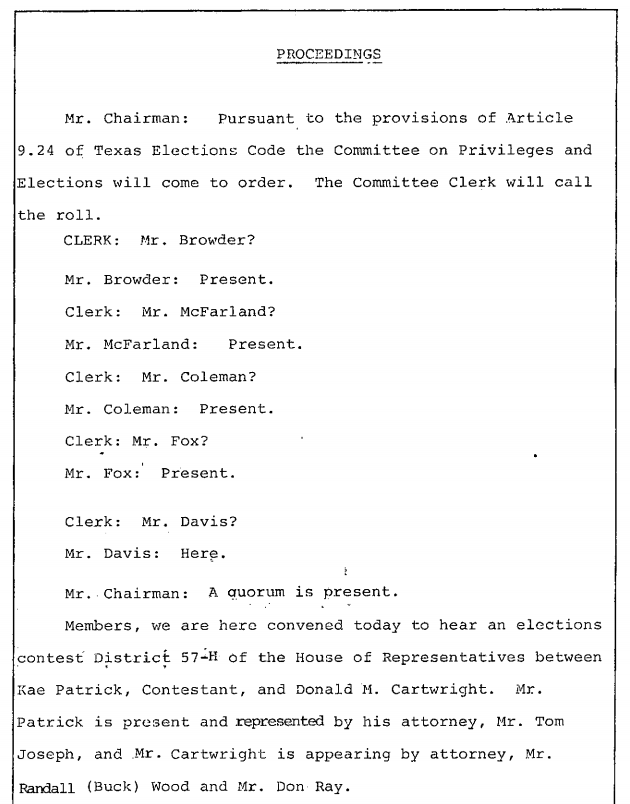
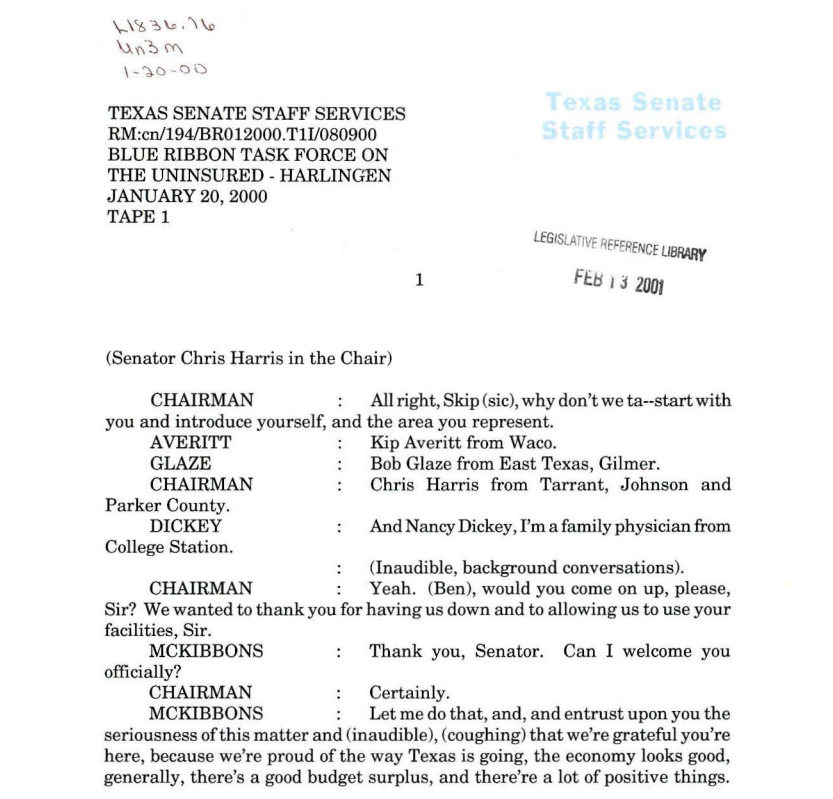
- The October 28, 1977 minutes for the House Committee on Natural Resources’ Subcommittee on the Texas Water Plan, 65th Legislature, include maps documenting the state of water resources at the time and projections for the future. (Large file may take a while to load.)
- At the January 23, 1979 meeting of the Senate Committee on Natural Resources, 63rd Legislature, attendees seem to have heard a “Poem about Pollution,” which is included on the last page of the minutes document.
- The 70th Legislature’s Joint Special Task Force on Rural Health Care Delivery documentation includes Rural Health Care '89, an excellent summary of the legislative package in the 71st Legislature, including the Omnibus Health Care Rescue Act, Medicaid enhancement, creation of the Outstanding Rural Scholar Recognition Program for rural students to pursue education in a health-related field, and hospital districts. (The report is also linked in the Legislative Archive System for the bills discussed, such as HB 1345, 71st R.S.)
- The House Committee on Redistricting, 77th Legislature, produced and reviewed many special supporting documents and color redistricting maps.
- The majority of meetings do not have transcriptions, but for the Senate Interim Committee on Economic Development, 75th Legislature, you can click on the dates to access minutes, witness lists, and transcripts for all of its meetings.
- Examine criminal history information systems by state. (Bureau of Justice Statistics, January 2018)
- Review the country's economic progress during the first year of the Trump administration. (Chairman of the Council of Economic Advisers, February 2018)
- See how the United States ranks against other top ten best countries. (U.S. News & World Report, ©2018)
- Track approval ratings by state for President Trump. (Morning Consult, February 1, 2018)
- "America is not a democracy." By Yascha Mounk. Atlantic Monthly, March 2018, pp. 80-87.
Explains that the preferences of a majority of Americans are not reflected in public policy on many issues. Recommends various reforms such as better pay for Congressional staff to attract more expertise, stronger conflict of interest rules, and changes to campaign finance laws. - "UT-Austin professors join campaign against productivity company." By Paul Basken. Chronicle of Higher Education, February 2, 2018, p. A21.
Highlights concerns University of Texas at Austin professors have regarding the data company, Academic Analytics, and use of the company's analysis to determine promotions, tenure, and other faculty issues. - "Amazon's search for HQ2." Dallas Business Journal, February 9, 2018, pp. 13-15.
Projects the top contenders among the twenty finalists for Amazon's second headquarters. - "Charities and tax in America: mass deduction" Economist, February 17th-23rd, 2018, pp. 64-65.
Reports recent tax reforms in America will hurt some charities more than others. - "Regulation: how to rig an economy." Economist, February 17th-23rd, 2018, pp. 25-26.
Advocates against unnecessary licensing, noting occupational regulations' potential to chill competition and boost inequality. - "Tax abatement agreements and taxpayer bankruptcies." By Dennis Rimkunas and L. Matthew Waterhouse. Journal of MultiState Taxation and Incentives, February 2018, pp. 6-13.
Reviews the adoption and enforceability of ipso facto clauses in tax abatement agreements and the procedures when it comes to a taxpayer's bankruptcy. Highlights the requirements of Texas' tax abatement agreements to reduce property taxes in Texas Tax Code Chapter 312.
Related information at: http://www.statutes.legis.state.tx.us/Docs/TX/htm/TX.312.htm - "Reasons for electronic cigarette use among middle and high school students — National Youth Tobacco Survey, United States, 2016." By James Tsai, et al. Morbidity and Mortality Weekly Report (MMWR), February 16, 2018, pp. 196-200.
Surveys adolescents to understand better why electronic cigarettes are the most commonly used tobacco product among the age group. Reports that the most common answers were use by friends or family, the availability of sweet flavors, and the belief that e-cigarettes are less harmful than other forms of tobacco. - "Real choices, real savings: keeping the lights on for low-income customers." By Jessica Porter. Public Power, January/February 2018, pp. 8-13.
Highlights public power programs created to assist low-income customers. - "Renewables are cheaper than the existing grid (which is cheaper than renewables): central vs. local supply." By Charles Bayless. Public Utilities Fortnightly, February 2018, pp. 38-31, 67.
Compares the costs of renewable energy to energy derived from the existing electric grids. Discusses costs associated with connecting renewable energy sources to the existing electric grids. - "Talking Texas markets, part 1." Public Utilities Fortnightly, February 2018, pp. 28-33, 75.
Features part one of a conversation between the editor-in-chief of Public Utilities Fortnightly and four leaders from the energy industry in Texas. - "America's secret death penalty drugs." By C.J. Ciaramella. Reason, March 2018, p. 10.
Highlights the tactics and laws various states employ to keep secret the drug sources and methods used for death penalty lethal injection. - "An unequal right to bear arms: state weapons laws and white supremacy in Texas, 1836-1900." By Brennan Gardner Rivas. Southwestern Historical Quarterly, January 2018, pp. 284-303.
Describes the prominent role of firearms in Texas culture and the history of early gun legislation dating to the Republic of Texas. - "Supreme Court weighs in on WOTUS challenges." By Jessica Domel. Texas Agriculture, February 2, 2018, p. 8.
Reviews the United States Supreme Court's ruling that federal district courts — rather than federal appeals courts — have jurisdiction to review the Environmental Protection Agency's WOTUS [Waters of the United States] rule. Points out that district courts provide landowners with a better venue to have their cases heard.
Related information at: https://www.supremecourt.gov/opinions/17pdf/16-299_8nk0.pdf - "PUC concerned about direct current [DC] ties to Mexico." Texas Public Power, January 2018, pp. 5, 7.
Mentions recent measures taken by the Public Utilities Commission [PUC] to address their concern about the Electric Reliability Council Of Texas' [ERCOT] jurisdictional relationship to electric power-related entities outside of the state.
Related information at: http://www.ercot.com/mktrules/issues/NPRR861#keydocs - "Tax bill keeps tax exemption for municipal bonds." Texas Public Power, January 2018, p. 3.
Provides an update regarding the recently passed tax bill and its effect on municipal bonds.
Related information at: https://www.congress.gov/bill/115th-congress/house-bill/1
|
Place
|
Designation
|
Resolution
|
|
Big Spring
|
Lighted Poinsettia Capital of Texas
|
|
|
Dripping Springs
|
Wedding Capital of Texas
|
|
|
Rockwall
|
Live Music Capital of North Texas
|
|
|
Spurger
|
Knife Capital of Texas
|
|
|
Stamford
|
Western Art Show Capital of Texas
|
|
Place
|
Designation
|
Resolution
|
|
Abilene
|
Storybook Capital of Texas
|
|
|
Brownsville
|
Bicycling Capital of the Rio Grande Valley
|
|
|
Dripping Springs
|
Wedding Capital of Texas
|
|
|
Jasper
|
Butterfly Capital of Texas
|
|
|
Jim Hogg County
|
Vaquero Capital of Texas
|
|
|
Nocona
|
Classic Car Capital of Texas
|
|
|
Poteet
|
Strawberry Capital of Texas
|
|
|
Quitaque
|
Bison Capital of Texas
|
|
|
Terry County
|
Grape Capital of Texas
|
|
Place
|
Designation
|
Resolution
|
|
Canton
|
Walking Capital of Texas
|
|
|
Floydada
|
Pumpkin Capital of Texas
|
|
|
Garland
|
Cowboy Hat Capital of Texas
|
|
|
Grand Prairie
|
Purple Martin Conservation Capital of Texas
|
|
|
Gregg County
|
Balloon Race Capital of Texas
|
|
|
Jewett
|
Sculpture Capital of Texas
|
|
|
Mansfield
|
Pickle Capital of Texas
|
|
|
Nacogdoches
|
Garden Capital of Texas
|
- The Budgeting Process for Public Universities in Texas, Texas Higher Education Leadership Conference, Texas Higher Education Coordinating Board, November 30, 2017
- Financing Public Higher Education in Texas: Legislative Primer (Non-Formula Funding) Legislative Budget Board, August 2016
- Overview of Higher Education Institutions’ Special Item Funding, Legislative Budget Board, May 2016
- Summary of Higher Education Special Items, Legislative Budget Board, January 2011
- Explore the status of remote sales tax collection in the states and in U.S. Supreme Court rulings. (National Conference of State Legislatures, January 25, 2018)
- Read about the net worth of every American president. (24/7 Wall St., February 12, 2018)
- Find statistics and history related to women in Congress. (Congressional Research Service, February 6, 2018)
- Trace a history of the last 100 years of the Dow Jones Industrial Average. (Macrotrends, accessed February 14, 2018)
- Consider the pros and cons of motorcycle lane-splitting. (Stateline, February 9, 2018)
- "Let us pray." By David L. Hudson. ABA Journal: The Lawyer's Magazine, February 2018, pp. 18-19.
Reports the federal circuit split on the constitutionality of legislator-led prayer before public meetings may lead to United States Supreme Court review. - "Crunch still on to find skilled workers in Texas." By Ryan Salchert. Austin Business Journal, February 9, 2018, p. 15.
Reports that despite construction employment growth in 2017, skilled labor shortages will continue to be an issue for the industry because of the emphasis on college education over trade education. Includes comment by Representative Barbara Gervin-Hawkins.
Related information at: https://www.agc.org/news/2018/01/23/construction-jobs-increase-42-states-between-december-2016-and-december-2017-32 - "Transparency concerns raised in bid here, other cities." By Daniel Salazar. Austin Business Journal, February 9, 2018, p. 12.
Discusses transparency issues relating to Austin's bid for Amazon.com Inc.'s second headquarters. Notes a growing trend in cities blocking release of information that would give an advantage to a competitor. - "High school renaissance." By Amadou Diallo. Christian Science Monitor, January 29, 2018, pp. 24-30.
Focuses on three previously low-performing schools in rural Ohio, Chicago, and Tulsa demonstrating a variety of innovative programs that are successful in improving graduation rates and creating paths to higher education. - "The need to shore up US infrastructure." By Laurent Belsie and Mark Trumbull. Christian Science Monitor, January 29, 2018, p. 17.
Presents the need for infrastructure investment in the United States and defines the associated costs. States an investment of $4.26 per day per household would reap a benefit of $9.31 per household. - "Could this cell save your life?" By Jeneen Interlandi. Consumer Reports, March 2018, pp. 37-41.
Warns of risks associated with experimental stem cell treatments. Notes the United States Federal Drug Administration is working on a new framework for stem cell regulations to provide more oversight over cellular therapies.
Related information at: https://www.fda.gov/downloads/BiologicsBloodVaccines/GuidanceComplianceRegulatoryInformation/Guidances/CellularandGeneTherapy/UCM585403.pdf - "Digital health: surgical intervention." Economist, February 3rd-9th, 2018, pp. 53-55.
Describes how the world's biggest technology firms — including Apple, Alphabet (Google), and Amazon — are poised to move beyond wearable devices that track fitness to platforms that deliver real medical services to patients at lower costs. - "The safety net: working for it." Economist, January 20th-26th, 2018, pp. 23-24.
Highlights Kentucky's Medicaid eligibility reforms, which will require that recipients work, volunteer, or study in exchange for medical care.
Related information at: https://www.medicaid.gov/Medicaid-CHIP-Program-Information/By-Topics/Waivers/1115/downloads/ky/ky-health-pa2.pdf - "Ethanol: your engine's answer to wintertime woes." By Kristy Moore. Ethanol Today, January/February 2018, pp. 20-21.
Explains the benefits of ethanol as a source of fuel during cold weather. - "A storm to remember: Hurricane Harvey and the Texas economy." Fiscal Notes, February 2018, pp. 1-16.
Presents the comptroller's original research and analysis on the economic impact of Hurricane Harvey, including hurricane history, direct and indirect damages, disaster relief funding sources, and future mitigation and flood control options. Estimates the net impact of the storm will be a loss of $3.8 billion in gross state product [GSP] during the first year, followed by a cumulative gain of $800 million over three years. - "Texas charter school system suffers low graduation rates." By María Robledo Montecel. IDRA Newsletter (Intercultural Development Research Association), January 2018, p. 6.
Highlights studies that show charter schools have lower graduation rates than traditional public schools. - "Physicians join frontline efforts to curb gun injuries, deaths." By Bridget M. Kuehn. JAMA (Journal of the American Medical Association), February 6, 2018, pp. 428-430.
Describes increasing efforts by physicians to address gun violence by collaborating with state and national legislators and partnering with gun owners to promote gun safety. - "Our infrastructure inefficiency." By Jonathan Coppage. National Review, February 19, 2018, pp. 14-15, 19.
Explains infrastructure projects cost more in the United States than in other industrialized countries due to high labor costs and "buy American" procurement rules. Considers innovative projects using private money such as Texas Central, the proposed high-speed-rail system connecting Houston and Dallas. - "Blockchain 101: 5 questions every banker should ask." By Lee Wetherington. Texas Banking, February 2018, pp. 8-11.
Discusses digital currency from a banking perspective, including comparisons of bitcoin versus blockchain, and blockchain versus distributed ledger technology [DLT]. - "Law school power struggle amplifies woes." By Angela Morris. Texas Lawyer, February 2018, pp. 18-20.
Reports on the problems within the leadership of the Texas Southern University Thurgood Marshall School of Law and its parent institution, as well as the censure issued against the school for multiple standards violations. - "Well endowed." By Neena Satija. Washington Monthly, January/February/March 2018, pp. 27-31.
Examines how the University of Texas System chooses to use money from the Permanent University Fund.
Check out and delivery of New & Noteworthy titles is available to legislative staff in Capitol and District offices. To arrange check out and delivery of any of these items, you can submit an online request through the New & Noteworthy page on our website, contact the library at 512-463-1252, or use our PDF request form.
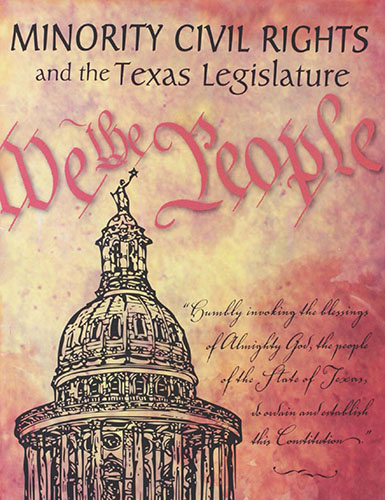
1. Minority Civil Rights and the Texas Legislature
By Secretary of Senate and Senate Engrossing & Enrolling
Surveys the history of racial intolerance toward minorities and the evolution of civil rights in Texas. Details how African American and Hispanic representation in the Texas Legislature has changed through the years. Profiles Texas lawmakers and leaders and their contributions to racial equality. Includes a selection of contemporary and historic photographs and artwork.
Senate Publications and Printing, 2018. 22 pages.
L1803.8 M667 2018
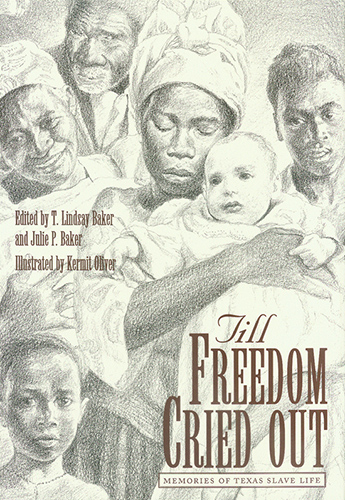
2. Till Freedom Cried Out: Memories of Texas Slave Life
By T. Lindsay Baker and Julie P. Baker, editors
Describes the lives of 33 former Texas slaves in their own words, as recorded by the Federal Writers Oral History Program carried out between 1937 and 1939. Complements this collection of life experiences brutalized by slavery with drawings by Kermit Oliver – the 2017 Texas State Artist – whose own ancestors were enslaved Texans.
Texas A&M University Press, 1997. 162 pages.
976.405 T46 1997
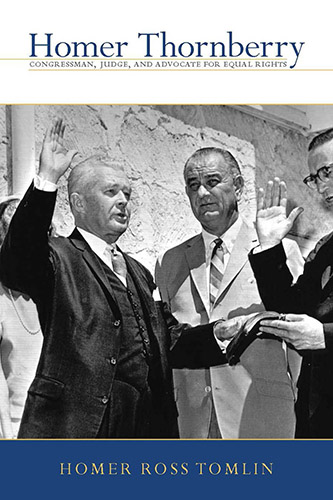
3. Homer Thornberry: Congressman, Judge, and Advocate for Equal Rights
By Homer Ross Tomlin
Examines the life of Homer Thornberry, who began his long career in public service with a stint in the Texas Legislature while still in law school. Documents his life in Congress and on the federal bench, and his strong stands for racial justice.
TCU Press, 2016. 222 pages.
347.73 T596H 2016
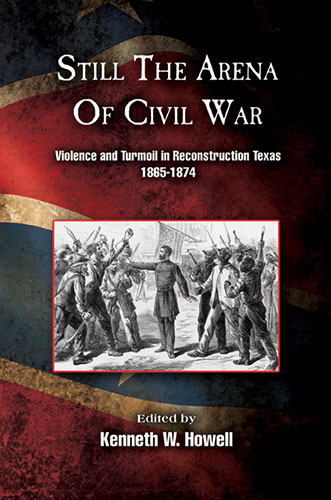
4. Still the Arena of Civil War: Violence and Turmoil in Reconstruction Texas, 1865-1874
By Kenneth W. Howell
Asserts that Texas was one of the most violent areas in the South after the Civil War, compiling a collection of essays that illustrate and analyze the bloodshed and cruelty that was directed toward blacks and Unionists. Argues that the violence and disruption of the Reconstruction era can be viewed as a continuation of the Civil War, and through that lens, the South may actually have won the War.
University of North Texas Press, 2012. 445 pages.
976.406 H839S 2012

5. Blockchain Revolution: How the Technology Behind Bitcoin is Changing Money, Business, and the World
By Don Tapscott and Alex Tapscott
Demystifies distributed ledger technology, better known as blockchain, which has the potential to transform the global economy, government services, and the cultural arts. Provides guidance on how to navigate this revolutionary innovation that facilitates secure online peer-to-peer transactions without any intermediary and allows for transparency while simultaneously preserving privacy. Addresses implementation challenges and risks as well as what needs to happen for this promising technology to succeed.
Portfolio / Penguin, 2016. 348 pages.
332.178 T169B 2016
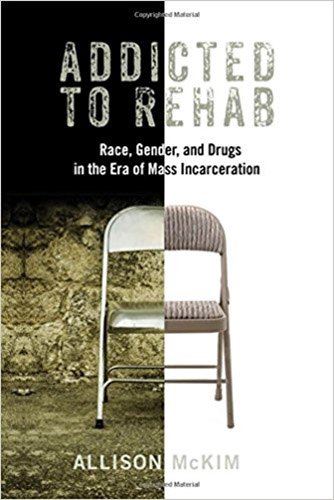
6. Addicted to Rehab: Race, Gender, and Drugs in the Era of Mass Incarceration
By Allison McKim
Contrasts two types of rehabilitation programs, one in the criminal justice system and one in the private healthcare system. Questions how we define addiction and how we use rehabs as an alternative to punitive incarcerations. Evaluates how race, economic status, and gender affect those in the rehab system.
Rutgers University Press, 2017. 232 pages.
362.29 M212A 2017

7. Summary of Enactments: 85th Legislature
By Texas Legislative Council
Provides synopses of significant legislation that was passed by the Texas Legislature in 2017. Includes bill number, author, sponsor, effective date, and governor's vetoes.
Texas Legislative Council, 2017. 320 pages.
Online at: http://www.tlc.state.tx.us/docs/sessions/85soe.pdf
L1400.7 AC27 2017
- Updated Hurricane Harvey’s Fiscal Impact on State Agencies, (Presented to Senate Finance Committee), Legislative Budget Board, January 30, 2018
- State of Texas Plan for Disaster Recovery: Hurricane Harvey (Final draft plan), Texas General Land Office, Community Development & Revitalization Program, January 18, 2018
- Hearing Materials, House Committee on Appropriations, Subcommittee on Disaster Impact and Recovery (Beaumont), January 12, 2018
- Interim Hearings – Week of January 8, 2018, House Committee on Appropriations, Subcommittee on Disaster Impact and Recovery (Beaumont), Legislative Reference Library, January 3, 2018
- The Property Tax in Texas, Texas Taxpayers and Research Association, February 2017
- A Tale of Two Tax Systems: The High (Business) Tax Cost of Texas, Texas Taxpayers and Research Association, January 2015
- States Moving Away from Taxes on Tangible Personal Property, State Tangible Personal Property Tax Statutory References for Tax Foundation Background Paper 63 (Appendix), Tax Foundation, October 2012
- The Texas Property Tax System (Taxable Property: Personal Property), Real Estate Center at Texas A&M University, July 2011
- Report to the 85th Legislature (Charge 6 – Delinquent tax collection, tax lien transfers, and interest rates), Senate Committee on Business and Commerce, November 2016
- Interim Report to the 84th Legislature (Charge 2 – Existing lien laws, property tax liens and interest rates), House Committee on Business and Industry, January 2015
- Sporting Goods Sales Tax Allocation (Issue Brief), Legislative Budget Board, May 2016
- Interim Report to the 83rd Texas Legislature (Charge 3 – State park funding, sporting goods sales tax), House Committee on Culture, Recreation, & Tourism, January 2013
- Interim Report to the 81st Legislature, Joint Legislative Task Force on Use of Sales Tax on Sporting Goods (Created by HB 12, 80th Legislature, R.S.), February 2009
- Texas Parks and Wildlife Funding: Park Funding in Texas — from Cigarettes to Sporting Goods (Legislative history), Texas Parks and Wildlife Department
- A Storm to Remember: Hurricane Harvey and the Texas Economy, Fiscal Notes (Special Edition), Texas Comptroller of Public Accounts, February 2018
- Updated Hurricane Harvey's Fiscal Impact on State Agencies (Presented to Senate Finance Committee), Legislative Budget Board, January 2018
- Hurricane Harvey: Fiscal Analyses and Resources (Agency expenditures, projected costs, contracts, and disaster related transfers), Legislative Budget Board
- Safeguarding America’s Lands and Waters from Invasive Species: A National Framework for Early Detection and Rapid Response, The U.S. Department of the Interior, 2016
- Early Detection/Rapid Response, Texas Invasive Species Institute
- Texasinvasives.org
- Early Detection & Distribution Mapping System (Status of Invasive - Texas), The University of Georgia - Center for Invasive Species and Ecosystem Health
- Manager's Tool Kit – Early Detection and Rapid Response, National Invasive Species Information Center, U.S. Department of Agriculture
- Interim Report to the 85th Legislature (Charge 1 – Religious liberty), Senate Committee on State Affairs, November 2016
- "Ports Could Benefit From Proposed Loan Program," Houston Chronicle, April 4, 2017
- "Provide State Funding for Seaport Capital Improvements," Legislative Budget Board Staff Reports, Legislative Budget Board, January 2017
- Interim Report to the 85th Legislature, Senate Select Committee on Texas Ports, November 2016
- Texas Ports 2017-2018 Capital Program: Project Summaries, Port Authority Advisory Committee, November 2016
- Texas Port Report June 2014 (Section 4 – Port Finance), Texas Department of Transportation, June 23, 2015
- Survey of State Funding Practices for Coastal Port Infrastructure: Final Report, Texas A&M Transportation Institute, May 2015
- Texas Transportation Code §§ 55.001-55.009, Funding of Port Security, Projects, and Studies
- Texas Transportation Code §§ 56.001-56.003, Funding of Ship Channel Improvements
- Interim Report to the 83rd Legislature, Joint Interim Committee to Study Human Trafficking, January 2013
- Texas Penal Code §§ 20.05-20.06, Smuggling of Persons, Continuous Smuggling of Persons
- Interim Report to the 80th Legislature (Charge 5 – Naming state highways, Appendices to Charge 5), Senate Committee on Transportation and Homeland Security, December 2006
- Texas Transportation Code §§ 225.001-225.006, State Highway Names in General
- 43 Texas Administrative Code § 25.9, Memorial Designated Highways and Historical Routes
- The Federal-State Higher Education Partnership: How States Manage Their Roles, Urban Institute, May 2017
- Ten Year Formula Funding History (Fund Distribution, Appropriations by Institution), Legislative Budget Board, October 2016
- Financing Public Higher Education in Texas: Legislative Primer, Legislative Budget Board, August 2016
- Why Performance-Based College Funding Doesn't Work, The Century Foundation, May 25, 2016
- Overview of Funding Formulas for Institutions of Higher Education (Presented to Senate Higher Education Committee), Legislative Budget Board, May 2016
- Performance-Based Funding for Higher Education, National Conference of State Legislatures, July 31, 2015
- Formula Funding (Formula Advisory Committee Meeting Materials), Texas Higher Education Coordinating Board
- Letter to Senator Bryan Hughes, Chair, Senate Select Committee on Election Integrity, regarding issues related to interim charges on election integrity, Attorney General of Texas, February 5, 2018
- Election Security: State Policies, National Conference of State Legislatures, December 11, 2017
- State Laws on Presidential Electors, National Association of Secretaries of State, November 2016
- The Electoral College, National Conference of State Legislatures, August 22, 2016

